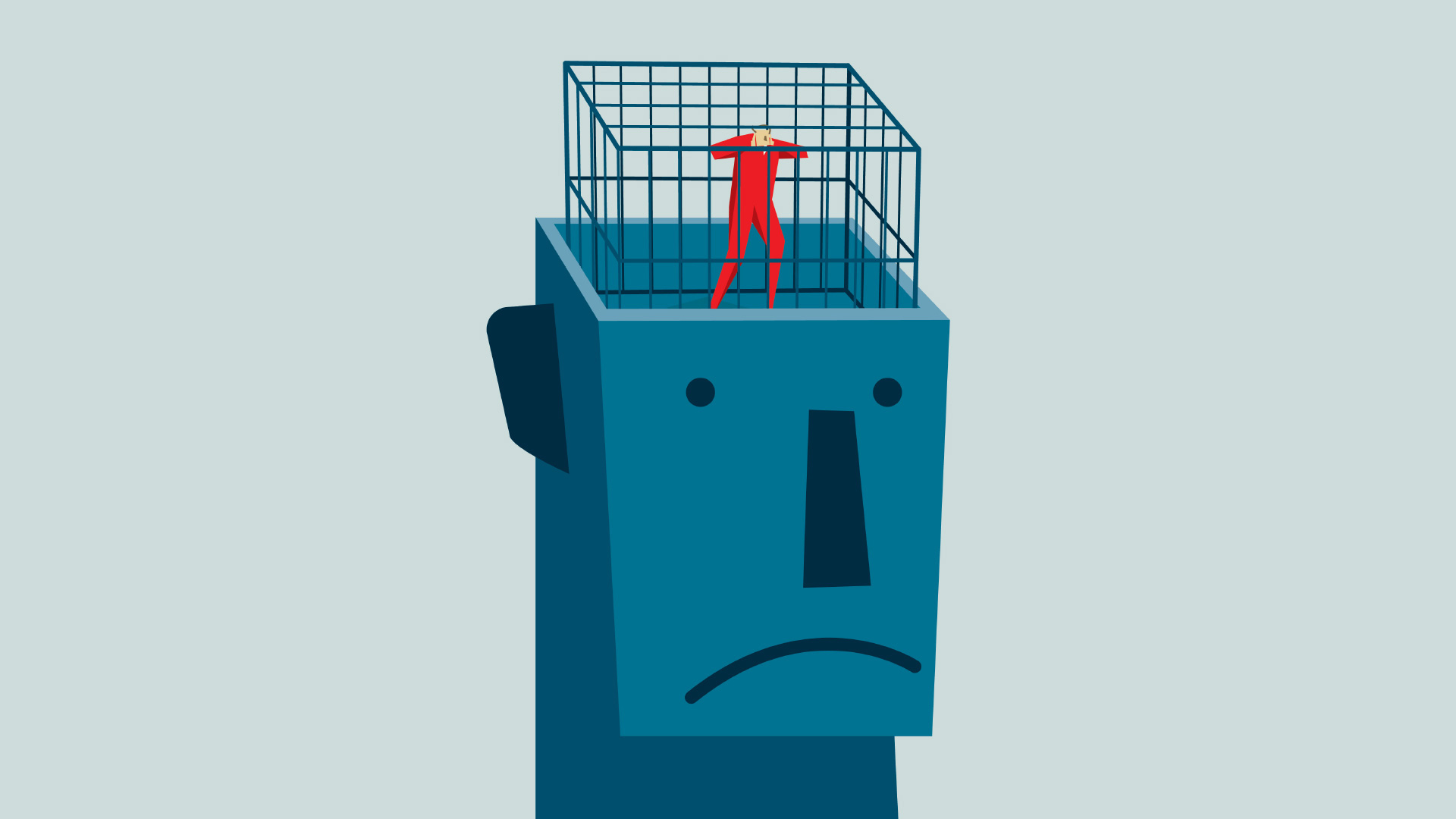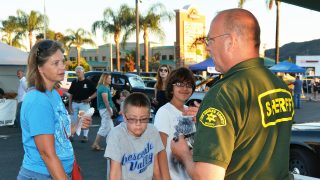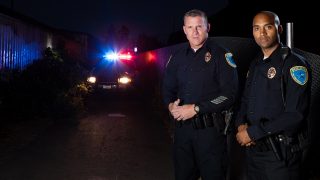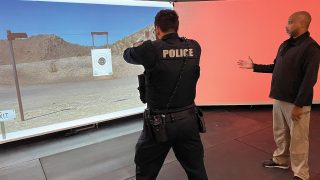
The pandemic and the civil unrest protests have heightened the sense of professional purpose among police psychologists across the nation. Department police psychologists from the major metropolitan law enforcement agencies of Los Angeles (LAPD), Dallas (DPD), Atlanta (APD), Honolulu (HPD) and the Cook County Sheriff’s Office (CCSO) in Chicago have combined forces to highlight common themes suggesting police psychology is in a time of great need. Innovative strategies that any agency (regardless of its size) can do to increase law enforcement family connections (as well as decrease officer isolation/vulnerability) are offered.
The pandemic has impacted intra-organizational dynamics, officer well-being, police–community relations and inter-organizational collaboration. As such, there has been a significant quantitative and qualitative demand for police psychologist clinical and organizational services. It has also changed the way police psychologists do business. Telehealth is a primary example. Whether you have access to a department police psychologist or an external contracted police psychologist, telehealth services are now routinely offered; expect this to continue in the future even after the pandemic has been resolved, due to several key benefits.
Access to care has been expanded. For example, officers are connecting with police psychologists on their smartphones from the stations before and after their shifts (and even from their patrol cars when needed during their shifts). Officers who could not be seen in person before (due to IOD, other significant medical conditions or residing in remote rural areas) are now able to routinely receive the support they need. Officer engagement has been improved; session no-shows have decreased and police psychologists are functioning as remote coaches for officers between sessions. Hours have been extended; police psychologists may be working late-night or zero dark thirty hours to meet the increased demands for services. Officer costs have been reduced; they do not need to commute to the doctor’s office for the session, and this has been particularly helpful to those assigned home without pay, but it may also reduce unnecessary ER visits. Doctor efficiency and officer satisfaction have increased. Overall, sworn and civilian employees tend to prefer the telehealth modality due to its convenience, flexibility and assurance of confidentiality through HIPAA compliance.
The civil unrest, protests and civic demonstrations have highlighted that trust has been fractured in communities regardless of any good works in the past. A re-examination of police tactics is critical for the evolution of law enforcement. A review of where we have been, where we are now and where we are going seems wise. It also seems wise to own any missteps along the way.
Nevertheless, it is true that the experience of the protests appears to be different depending on the department and city served. In Dallas, for example, such events may have been more traumatic given the July 7, 2016, ambush resulting in five officers killed, 12 officers shot and wounded, and over 400 officers exposed firsthand to the deadliest critical incident in U.S. law enforcement since 9/11, despite the fact that it began as a peaceful protest. In Honolulu, the struggles of 2020 started on January 19 when two officers were ambushed and killed in the line of duty. As a result, Honolulu police went into the pandemic and protests of 2020 with an emotional deficit and had to work hard to muster the energy to provide the services and the protection that the community still needed at a critical time in world history.
The pandemic, combined with the protests, has led many officers nationwide to feel abandoned by their department leadership as well as their top elected officials, perceiving that those leaders and officials had turned their backs on the officers who risk their lives every day for the community. Some officers have felt this is not the profession that they joined. Officers have questioned why their leaders are not protecting and sticking up more for officers, especially officers of color. Such biculturalism requires navigating between two worlds — law enforcement and race — like a tightrope walker on a high wire.
Police psychologists have found that their role may have significantly changed from what it was pre-pandemic. For example, depending on the department, police psychologists have seen a dramatic focus on marital counseling (whereas maybe they provided little or no couples counseling before), grief counseling (due to significant loss after loss), substance abuse and addiction interventions or the need for them to serve as public health professionals within the department. Police psychologists are not immune or isolated from the pandemic and protests. They are also exposed, restricted, having to navigate misinformation and keep their families safe. They, like the officers, are not operating in a cultural vacuum. It has become a parallel process.
The pandemic, combined with the protests, has highlighted that police psychology is in a time of great need. Police psychologists are the pillars of strength, even in the midst of any internal department fracturing and any external disconnect in the community. Officers reported that they need the police psychologists now more than ever. All of this has led to a heightened sense of purpose.
Here are some strategies that any agency can use (regardless of size) to increase law enforcement family connections (as well as decrease officer isolation/vulnerability) during the pandemic:
- Increase department transparency and communications. CCSO, for example, has been proactive in providing daily notifications to staff, not only to facilitate need-to-know information regarding safety during a pandemic, but also to encourage overall well-being, healthy living and eating, physical and emotional health, and mental health tips aimed at normalizing and destigmatizing feelings of stress and anxiety. Atlanta EAP has disseminated information to public safety personnel (police and fire) focused on effective front-line daily communications with citizens, personal family concerns during the pandemic and grief resources following COVID-19 deaths. Atlanta EAP also participated in weekly AFRD Health and Safety meetings and APD debriefings.
- Increase officer mindfulness. DPD, for example, trained approximately 350 officers in meditation and mindfulness techniques at the local Center for Brain Health. Each cohort was assessed weekly over the course of four weeks. Participant outcomes included improved sleep, increased focus and attention, and a reduction in stress response. LAPD teaches hands-on mindfulness, distress tolerance, emotion regulation and effective communication skills in roll-call trainings and in many of their behavioral health groups.
- Increase courtesy outreach. HPD diligently provided courtesy outreach calls, texts and emails regularly throughout the department. Department outreach does not need to be glamorous. Officers need to know you care. DPD conducted welfare checks to those who were exposed to COVID-19 regardless of test outcome, and they ramped up outreach calls to specialized units on the front lines of protests.
- Expand community partnerships. CCSO, for example, collaborated with community hospitals to provide daily, on-site and free COVID-19 testing for all staff. HPD partnered with the local hospital to enhance consultations by police officers; this allows for better community collaboration between private hospital staff and law enforcement to assist those in a mental health crisis.
- Increase resilience support to front-line supervisors. CCSO, for example, will be launching a Leadership Development Corps to provide support, mentorship and resiliency training to front-line supervisors. They believe that leaders who are resilient are more likely to foster resiliency with front-line staff.
- Increase connection via virtual strategies. LAPD Behavioral Science Services (BSS), for example, runs virtual groups (e.g., grief and loss, sobriety tactics, Supporting Sobriety: 12 Steps for Spouses, dialectical behavioral therapy, spouse support, divorce support, men’s early trauma and injury recovery) as well as department-wide webinars presented jointly with the chief of police (e.g., the crisis in policing, family support, responsible drinking and off-duty tactics). LAPD also implemented a virtual walk to end suicide in which law enforcement around the world can participate every September.
- Increase utilization of peer support. DPD Peer Support, for example, created focus groups centered on common risk factors for officers (e.g., relationship problems, financial issues, administrative leave, workplace injuries) as well as a support group for those who were experiencing residual feelings from the July 7 ambush. LAPD created multiple specialty cadres within their existing peer support (e.g., vet2vet, health and fitness, caregiver, OIS, substance abuse, retiree) that provide additional support for personnel. Atlanta EAP partnered with APD Peer Support to consult on units and zones that needed more support.
- Catch them before they leave. DPD, for example, created a “going home checklist,” which focuses on checking in with each other (before going home from your shift) on three things that went well that day and releasing anything negative in order to rest and recharge.
- Increase acceptance of mutual aid. HPD, for example, provided psychological mutual aid to Maui P.D. after an officer suicide. LAPD Substance Abuse Task Force (SATF) created the Law Enforcement Addiction Network — LEAN on Me — which provides ongoing mutual aid to law enforcement personnel and agencies. Go to leanlapd.online to learn more.
- Stay connected. Pick up the phone. Call or email your colleague. Reach out. Offer support. Teaming up makes a difference. Do what we do; stay connected! We are at your service.
As seen in the March 2021 issue of American Police Beat magazine.
Don’t miss out on another issue today! Click below:





